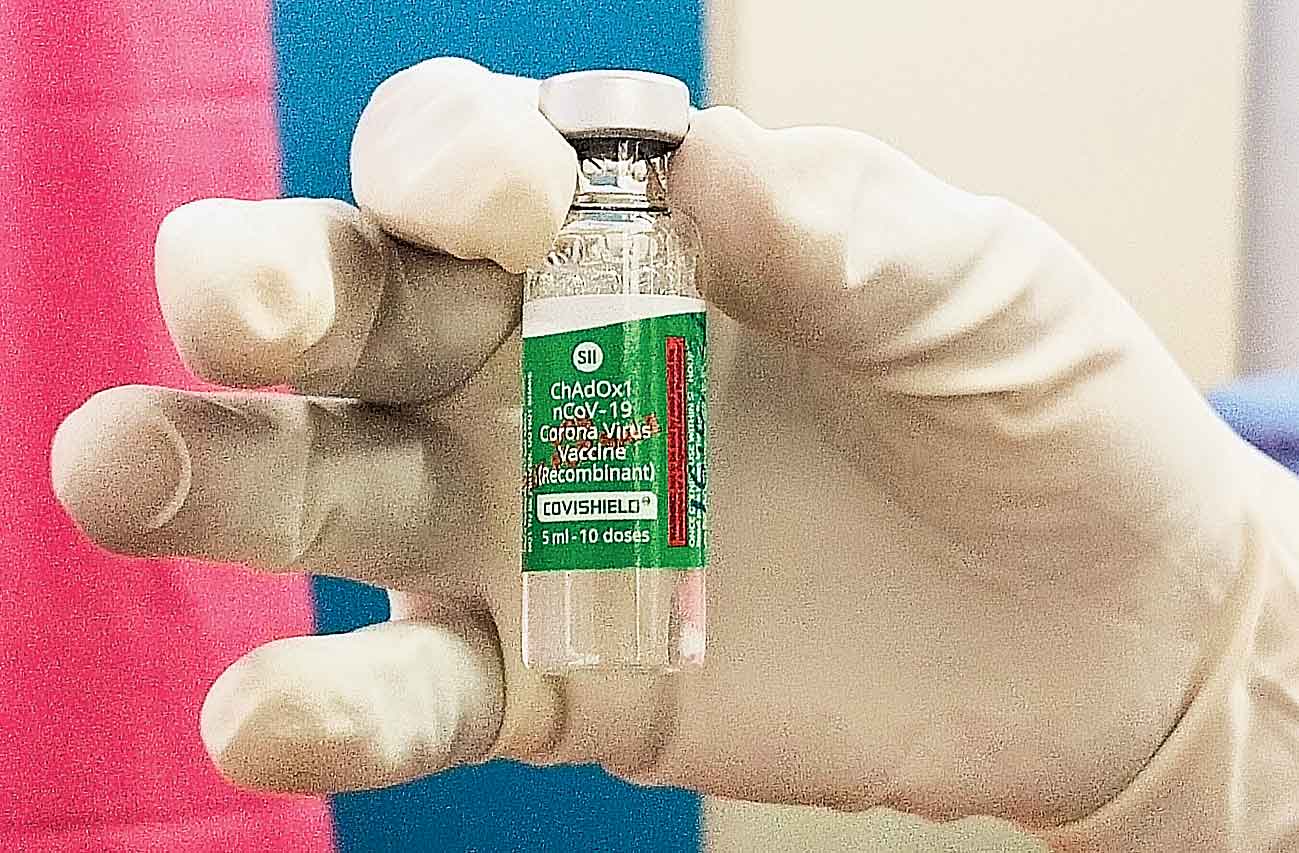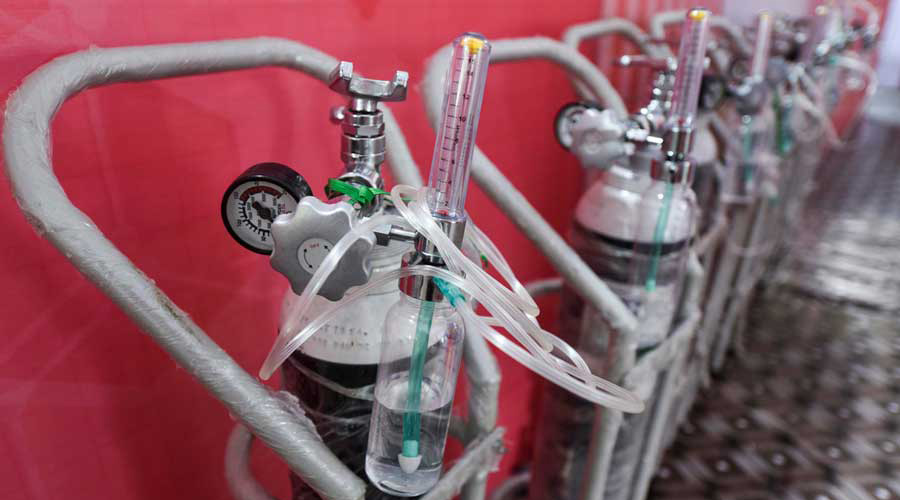Vaccine maker Serum Institute of India on Wednesday ignited a political firestorm after announcing a differential pricing system for its Covid vaccine under which state governments will have to pay Rs 400 per dose while private hospitals will have to fork out Rs 600.
The Pune-based entity currently supplies the vaccine to the Centre at Rs 150 per dose.
The Congress seized on the announcement and slammed the Narendra Modi government for allowing vaccine makers to profiteer while shrugging off its responsibility for sourcing, financing and distributing the vaccine in stark contrast to the way other nations have tried to deal with the pandemic.
Congress leader P. Chidambaram criticised the Modi government for fostering unhealthy market practices and encouraging profiteering by failing to fix a price for the states at the same level that the Centre had negotiated with the companies.
Adar Poonawalla, chief executive officer of Serum Institute, scrambled to douse the controversy by clarifying that it would sell the vaccine to the Centre at Rs 400 per dose once it fulfils its obligations under an earlier contract.
“Let me clarify: all government prices will be Rs 400 per dose under the new contracts. The Rs 150 price that is being bandied about (for central government purchases) relates to a prior contract. After that ceases to exist — that is, after we supply about 100 million doses to them under a bulk contract signed a long time ago — we will charge the same price of Rs 400 per dose from every government,” Poonawalla said in a television interview.
Poonawalla said the company was losing money by selling the vaccine to the Centre at Rs 150 per dose because it had to pay royalty of up to 50 per cent of the price to AstraZeneca, which developed the vaccine.
Industry observers said the royalty rate was way too high but said it could be justified as the Serum Institute had not been granted any pricing freedom until now.
The Serum Institute CEO claimed that the earlier contracts with the government and the Covax facility — the global partnership that was created to equitably allocate 2 billion doses to WHO-defined priority populations by the end of 2021 — were struck in 2020.
“We were sharing the risk because at that stage, we were not even sure that the vaccine would work,” Poonawalla said while explaining the low-ball pricing.
At present, the Covid vaccines are being administered to people above 45 at Rs 250 per dose at private hospitals and free of cost at government-run health centres.
From May 1, all adults in the country will be eligible for the vaccine.
A serious vaccine shortage is feared early next month and hospitals and health centres may not be able to cope with the swarm of young people who are expected to line up for the vaccine.
Under the new pricing policy that was announced on Monday, vaccine makers are permitted to divide their domestic supply of doses equally between the Centre, on the one hand, and the state governments and the private hospitals, on the other.
“Going ahead, 50 per cent of our capacities will be served to the Government of India’s vaccination programme, and the remaining 50 per cent of the capacity will be for the state governments and private hospitals,” the Serum Institute said.
The vaccine makers must declare their prices before May 1 when the new policy comes into force.
The vaccine maker contended that its prices were lower than that charged by rivals in the global markets. It claimed that the American vaccines cost more than Rs 1,500 per dose in the private market while the Russian and Chinese versions were priced at more than Rs 750 per dose.
Poonawalla said Serum Institute was planning to ramp up vaccine production by 15-20 per cent per month and it would be in a position to produce 100 million doses by July.
Serum Institute expects that its vaccines will be available in the retail markets after four to five months.












